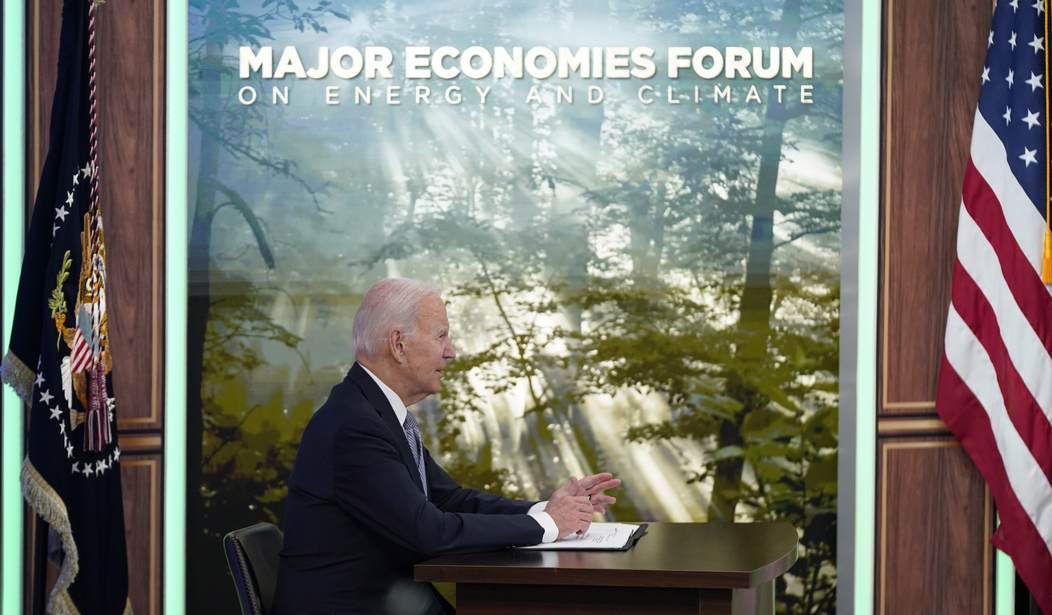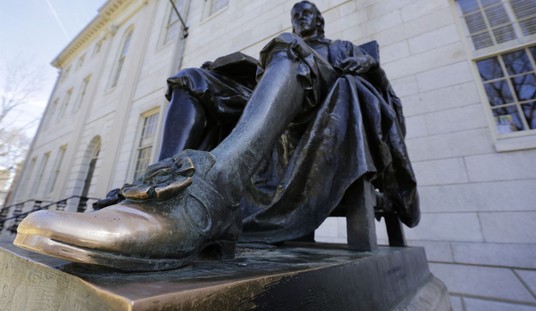I've said it before and I'll go on pointing this out: Through most of Earth's history, it's been warmer than it is now. At some points in the planet's history, such as the Carboniferous, not only the heat and humidity but the oxygen content of the atmosphere supported millipedes the size of cars and dragonflies the size of eagles, and humans would have found the air unbreathable. As recently as the Cretaceous, when one may well have encountered a T-rex while wandering the woods, oxygen levels were nearly double what they are now.
Earth's climate has always changed. It always will. Humans, yes, we have some effect - but our impact is almost certainly small potatoes next to one good volcano. And yes, CO2 is a greenhouse gas, but it's not the only greenhouse gas. A recent study by the Smithsonian and the University of Arizona has detailed the broad strokes of global temps going back nearly half a billion years.
I have to say, there are no surprises.
Published in the journal Science, the study presents a curve of global mean surface temperature that reveals Earth's temperature has varied more than previously thought over much of the Phanerozoic Eon, a period of geologic time when life diversified, populated land and endured multiple mass extinctions. The curve also confirms Earth's temperature is strongly correlated to the amount of carbon dioxide in the atmosphere.
Correlated. Not caused. But it's an interesting development; the Earth's climate, according to the data obtained here, has always varied, and even more widely than we thought. Of course, we already knew this. As recently as the Oligocene there were no polar ice caps. And no titanotheres were driving around in SUVs or operating coal-fired power plants.
Here's the kicker:
The new curve reveals that temperature varied more greatly during the past 485 million years than previously thought. Over the eon, the global temperature spanned 52 to 97 degrees Fahrenheit. Periods of extreme heat were most often linked to elevated levels of the greenhouse gas carbon dioxide in the atmosphere.
"This research illustrates clearly that carbon dioxide is the dominant control on global temperatures across geological time," Tierney said. "When CO2 is low, the temperature is cold; when CO2 is high, the temperature is warm."
That's correlation, not causation, I might point out. Also, where are the comparisons to other greenhouse gases, like methane and water vapor?
This study presents broad trends, not sharp details, and for the sweep of geologic history examined, that's the best we can hope for. Other than how far the edges spread, there's no real surprise in any of this. Throughout most of Earth's history, it's been warmer than it is now; we are in a geological period when glaciers are, on the geological time scale, going up and down like window blinds. We're currently in an interglacial period, and if warming prevents much of North America, Europe, and northern Asia from once more being covered in mile-thick ice sheets in 20-30,000 years, whatever people are around at that time will probably thank us for it. Warming may be hard on some non-human species, but that, too, has always been the case; that's why you aren't seeing many woolly mammoths or dire wolves around these days. That's not to say humans should be capricious or uncaring about the other life we share this little blue-white pearl with, but there is a point beyond which we shouldn't sacrifice our modern technological lifestyle for a minnow or a mouse.
See Related: What Happened to Science Journalism?
Alaskan Summers Are Getting Warmer - Resulting in New Farms
Finally, the U of AZ article makes this claim:
Rapidly moving toward a warmer climate could spell danger for humans who have mostly lived in a 10 degree Fahrenheit range for global temperature, compared to the 45 degree span of temperatures over the last 485 million years, the researchers say.
"Our entire species evolved to an 'ice house' climate, which doesn't reflect most of geological history," Tierney said. "We are changing the climate into a place that is really out of context for humans. The planet has been and can be warmer – but humans and animals can't adapt that fast."
In other words, the climate is changing - back towards the planet's historic mean. But I don't believe for a moment that humanity can't adapt that quickly. We don't have to adapt biologically, like most animal life; we adapt technologically and always have. That's the human gift, the gift that allowed us, essentially a tropical savannah animal, to spread across the globe from the Arctic to Tierra del Fuego. That's the gift that will always preserve us if watermelon (green on the outside, red on the inside) activists and well-meaning but ill-informed advocates stay out of the way. We solve today's problems with tomorrow's technology, and if carbon emissions are the worry, then we already have a technology, one that is well-established and rapidly developing, that will meet that goal - nuclear power.
You can see the full study here. By all means, examine the source.














